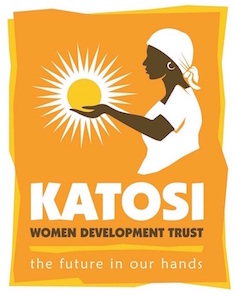Katosi Women Development Trust (KWDT); registration number S.5914/6911 under
the Non-Governmental Organizations Registration Statute of 1989; is a non- profit organisation with a goal to improve living standards of poor, rural fisher communities in Uganda by empowering them to engage in their development processes. KWDT has been working with rural and fisher women for more than 25 years and has been instrumental in creating change in the lives of the rural fisher women and their communities. KWFDA started as Katosi Women Fishing Group (KWFG) with 26 women in 1996 in a semi traditional society that placed control of resources and power in the hands of men exacerbating the marginalisation of women and children. Besides supporting women to participate in fishing activities, the group started to engage women in the removal of the hyacinth, an invasive water weed, from Lake Victoria.
The ban on fishing in 2000, due to the use of poison in fishing, prompted KWFG to support women to diversify and engage in other economic activities such as farming and rearing livestock. When the group started to engage in other non-fishing activities, a decision was made to change its name from Katosi Women Fishing Group (KWFG) to Katosi Women Fishing and Development Association (KWFDA). Community members were inspired by the development and progress in the households of the 48 KWFDA members and by 2004 other women opted to form groups to join KWFDA prompting the formation of Katosi Women Development Trust (KWDT) to coordinate all these women groups. Initially, four (4) women groups came together to form KWDT to
equitably share resources, skills and knowledge for their development. Currently
KWDT is coordinating 722 women organized in 31 groups from 4 sub counties and 2
town councils in Mukono, 526 fisher women organised in 11 groups, from 11 landing
sites in Buvuma & Kalangala. KWDT intervenes on economic empowerment, access to
water, sanitation and improvement of hygiene, formal and non-formal education and
environment conservation through the women’s groups. KWDT also seeks a holistic
and comprehensive approach of development of people and communities while
recognizing the needs to conserve and protect the environment.

